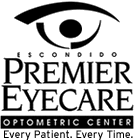Tears are a necessary element of eye health. Tears flush any dust or particles out of the eye and keep the eyes moist and comfortable. Certain enzymes found in tears eliminate microorganisms that can be found in the eye.
In instances where the eyes lack sufficient tears, symptoms can present themselves such as persistent dryness, stinging, itching or the feeling of something in your eye. To the surprise of many, sometimes dry eyes can cause eyes to water excessively in an attempt to compensate for inadequate tearing.
Dry eye syndrome can be caused by a several reasons. One factor is age as most individuals that suffer from dry eyes are adults, and often women during menopause. Reduction in tear production can also be a result of a number of medications including diuretics, antidepressants, birth control pills among others. Dry or dusty air, and dry heat or air circulation can also cause or worsen dry eyes. In addition, some diseases such as lupus, rheumatoid arthritis or others, excessive sitting in front of a computer screen or usage of contact lenses can cause dry eyes.
The first treatment option is typically lubricating eye drops which work by putting moisture back into the eye. Your optometrist can show you which eye drops to buy and how to use them. If over the counter artificial tears don’t help you may need prescription drops that actually help your eyes to produce more tears.
When lubricating drops aren’t enough, your optometrist might recommend Lacrisert, an insert placed inside the eyelid that continually releases moisturizing ingredients at various intervals. Another option is punctual plugs which help keep moisture on the eye by controlling the drainage of tears. Some eye doctors might discuss a few ways for you to adapt your environment and your diet to relieve the symptoms as well.
For the majority of individuals, dry eyes will not cause any permanent harm but can be a discomfort. However, severe cases could make you more vulnerable to infection so it is worthwhile to speak to your eye doctor.
Especially in the wintertime, it would help to make every effort to protect your eyes from arid air, cold winds and dust. Wearing sunglasses when going outdoors, and trying out a humidifier inside to combat dry heat are steps that could help.
If you are suffering from some of the symptoms listed above schedule a visit to your optometrist right away!


*Closed daily for lunch between 1pm to 2pm